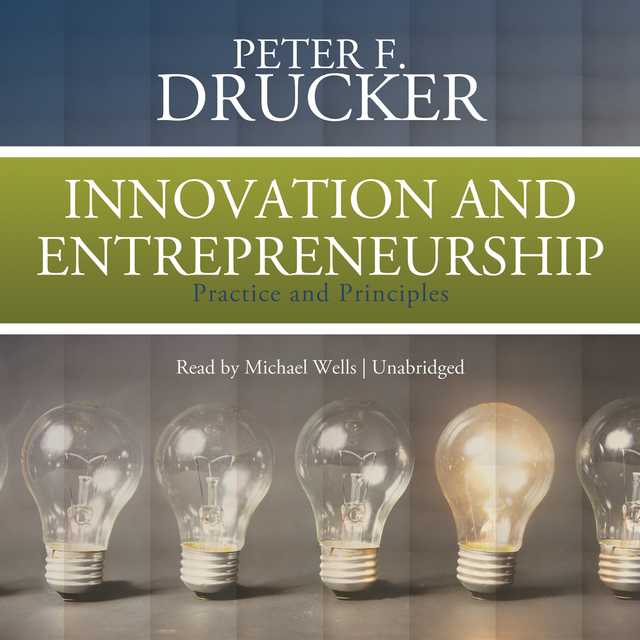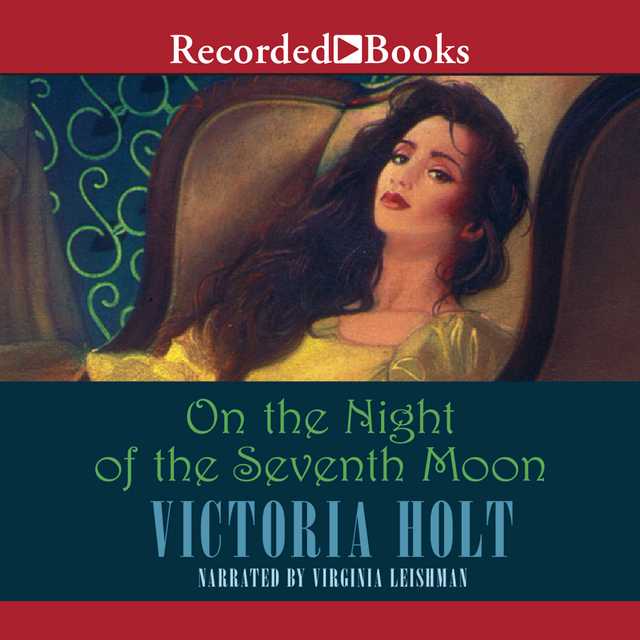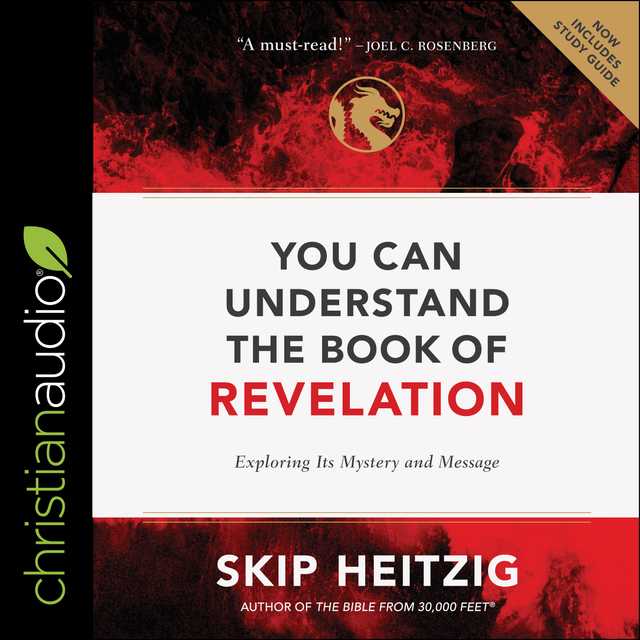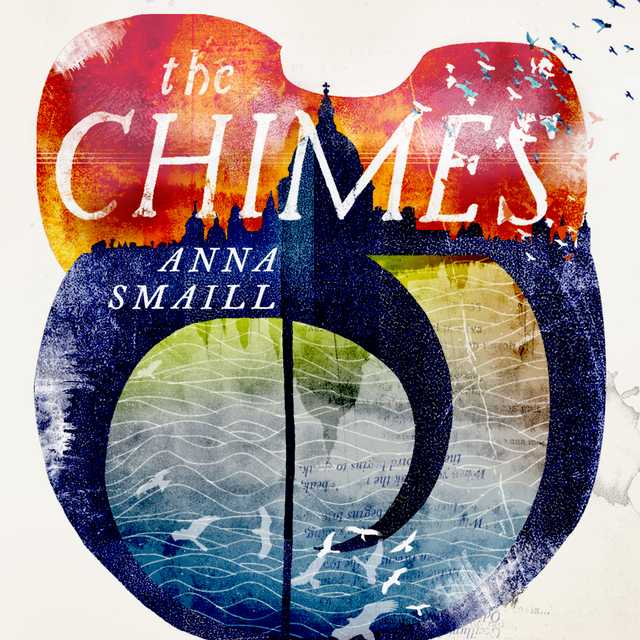The Gulag Archipelago Volume 2 Audiobook Summary
“BEST NONFICTION BOOK OF THE 20TH CENTURY.” —Time
Volume 2 of the Nobel Prize-winner’s towering masterpiece: the story of Solzhenitsyn’s entrance into the Soviet prison camps, where he would remain for nearly a decade. Features a new foreword by Anne Applebaum.
“The greatest and most powerful single indictment of a political regime ever leveled in modern times.” –George F. Kennan
“It is impossible to name a book that had a greater effect on the political and moral consciousness of the late twentieth century.” –David Remnick, The New Yorker
“Solzhenitsyn’s masterpiece. . . . The Gulag Archipelago helped create the world we live in today.” –Anne Applebaum, Pulitzer Prize-winning author of Gulag: A History, from the foreword
Other Top Audiobooks
The Gulag Archipelago Volume 2 Audiobook Narrator
Frederick Davidson is the narrator of The Gulag Archipelago Volume 2 audiobook that was written by Aleksandr I. Solzhenitsyn
After serving as a decorated captain in the Soviet Army during World War II, Aleksandr I. Solzhenitsyn (1918-2008) was sentenced to prison for eight years for criticizing Stalin and the Soviet government in private letters. Solzhenitsyn vaulted from unknown schoolteacher to internationally famous writer in 1962 with the publication of his novella One Day in the Life of Ivan Denisovich; he was awarded the Nobel Prize in Literature in 1968. The writer’s increasingly vocal opposition to the regime resulted in another arrest, a charge of treason, and expulsion from the USSR in 1974, the year The Gulag Archipelago, his epic history of the Soviet prison system, first appeared in the West. For eighteen years, he and his family lived in Vermont. In 1994 he returned to Russia. Aleksandr Solzhenitsyn died at his home in Moscow in 2008.
About the Author(s) of The Gulag Archipelago Volume 2
Aleksandr I. Solzhenitsyn is the author of The Gulag Archipelago Volume 2
More From the Same
- Author : Aleksandr I. Solzhenitsyn
- The Gulag Archipelago Volume 3
- In the First Circle
- The Gulag Archipelago 1918-1956
- The Gulag Archipelago Volume 1
- March 1917
- Publisher : Caedmon
- Dubliners
- Julius Caesar
- The Two Gentlemen of Verona
- The Tempest
- Measure for Measure
The Gulag Archipelago Volume 2 Full Details
| Narrator | Frederick Davidson |
| Length | 27 hours 30 minutes |
| Author | Aleksandr I. Solzhenitsyn |
| Category | |
| Publisher | Caedmon |
| Release date | October 13, 2020 |
| ISBN | 9780063045200 |
Subjects
The publisher of the The Gulag Archipelago Volume 2 is Caedmon. includes the following subjects: The BISAC Subject Code is Literary Criticism, Russian & Former Soviet Union
Additional info
The publisher of the The Gulag Archipelago Volume 2 is Caedmon. The imprint is Caedmon. It is supplied by Caedmon. The ISBN-13 is 9780063045200.
Global Availability
This book is only available in the United States.
Goodreads Reviews
David
April 25, 2018
Wow.The first volume of Soltzhenitsyn's book was fantastic, this one is so much better. Yes, part 3 (which consists about 597 of the 672 pages) drags after a while. In it he takes the reader through the Gulag, with chapters on the overseers, the children and pretty much every other aspect of the camps. We know it is vital to never forget the horrors of 20th century totalitarianism, and this book ought to be required reading to help us never forget. But it is the short part four where the best of the book comes in. Soltzhenitsyn talks about how the camp brought out who people really are. People, he argues, did not become evil in the camp. Rather, they were already evil and this brought it out. This reminds me of Jesus' teachings about those faithful in small things will be given more. Who are really are when you're poor and insignificant will be amplified if given the chance. At the same time, Soltzhenitsyn reminds us that it is not just that some are evil, for that dividing line runs through each of us (fun fact, that is the one quote you may be familiar with, and he says it twice, having said it early in volume 1). How does that work? How is it both true that people in the camps who became corrupt already were like that, as opposed to those in the campus who persevered? Soltzhenitsyn speaks about a moral core, a nucleus, and I think that's it. We are all capable of horrific things. If I look at those camp guards, the people who performed horrible acts, and recognize they are part of the same human race, that has to be humbling. I'm just as human as they are. I am just as capable of evil, for that line goes right through me. We need to be honest with who we are and discover that moral nucleus that would enable us to persevere in the worst circumstances. As our culture leaves some of its traditional foundations for morals behind...its easy to think we're in trouble as a culture. May we not be too quick to leave the wisdom of the past behind. This brings me back to Frankl's Man's Search for Meaning, which I read recently. If the Gulag is too intimidating in its length, check that one out first. Then come back here.So slog through the first 600 pages and read closely the last 80. Its worth it!
Gator
June 13, 2018
The fact that Solzhenitsyn made it out of the Gulag alive and blessed us with this book is an absolute gift. This is the most influential book I’ve read to date in my life. A Masterpiece!“Gradually it was disclosed to me that the line separating good and evil passes not through states, nor between classes, nor between political parties either — but right through every human heart — and through all human hearts. This line shifts. Inside us, it oscillates with the years. And even within hearts overwhelmed by evil, one small bridgehead of good is retained. And even in the best of all hearts, there remains.... an unuprooted small corner of evil.”
Cassandra Kay
May 17, 2020
I started reading this series after a verbal altercation with an individual over my American upbringing and challenged notions about the Soviet Union and its actuality. As someone who does not like being challenged on their assumptions unfairly, I took up the challenge of reading the canon of the Gulgag in an attempt to gain an awareness of something that apparently I was fundamentally missing. Oh had sadly true that statement is. How fatefully unaware my assumptions regarding humanity tyranny and personal subjugation truly were. This book truly changed my life, my political leanings, my assumptions about humans, justice and capacity. Were it not so. May all the lives lost in this machine of death be remembered.
Joel
January 22, 2021
'No matter how ruined a man and his world may seem to be, and no matter how terrible man's despair may become, as long as he continues to be a man his very humanity continues to tell him that life has a meaning.' - Thomas Merton (from the opening sentence of his No Man is An Island)I have spent the last few years reading this book. I began it some sunny day many different selves ago, having always been charmed by the bitter wisdom of the Russian literary type, and knowing that Solzhenitsyn esteemed a strong religious belief and one that seemed confounding in light of Russian history. A history I will admit, I did not know much about. And I will continue to admit I do not know that much about. The Russian history is one long, storied, complicated, narrative. The kind the doubles over itself, with too many characters, with too many names, with too many individual moments to ever be fully grasped. I have read this book as one digests the heaviest of meals. One of the few things I recall about high school english class was a particular assignment when reading Shakespeare’s Hamlet, in which we are asked to try and trace at which point the main character’s tragic fate was clinched. The idea was that at some point fate takes the lead of one’s life, and steers the car towards the inevitable cliff. Before that point life is lived in turns of sweet and sour, but at some point there crosses a point of no return.Russia it seems to me wanders for it’s own 40 years into that fate of a wilderness. And this book (these series of books) takes a few thousand pages to try and wrestle out the why’s, the who’s and how-come’s of inevitable tragedy. Of the devastation of a people, and what should ultimately be the destruction of the human soul.What staggers the mind, and overwhelms the reader, is not only the mind-numbing onslaught of detail and character, but the indefatigable voice that tells each new height of insurmountable violations on the dignity of the human spirit.Somehow in the final chapter of this volume the author stumbles out of the darkness and dares to declare some strange spirit of hope. And it is this spirit (that lies at the center of even it’s darkest passages) that makes this one of the most remarkable literary experiences of published print.Few books have so profoundly, and subconsciously seeped into my psyche, and shaped my understanding of suffering and hope, despair and life.This is not a pleasant, easy or enjoyable read. Is it too much? Yes. Is it verbose to the point of losing most readers? Yes. Is it plodding, meandering, difficult to follow? Yes. Is it also beautiful, poetic, life-affirming? Yes.How does one review a book like this? It is the testament of one man’s spirit. The history of one man’s life. An attempt to fully document an age. It sits on my shelf like an ikon. Will I reread it? Passages certainly, and if one day more-than-likely an abridged edition. But it is a book that has shifted, challenged and shaken so much in me. For it’s existence I am thankful.
Aaron
December 01, 2018
"This was no different from Auschwitz..."This is not an overstatement; if anything, Solzhenitsyn has shown that the Gulag was worse than Auschwitz. No single camp in Gulag saw as much death, true, but the Nazi system was neither as extensive nor as long-lived, nor did as many people go through the Nazi camps as the Soviet camps. And this is horrible, but it is true: the majority sent to Auschwitz died quickly. Those who died in the Gulag did so after years or decades of prison life degrading not just their bodies, but their souls, their humanity. Viktor Frankl spoke of the man going into the gas chamber chanting a psalm of thanksgiving. This is infinitely more difficult to do when one must sing for a quarter century. Yes, Socialists today should be held accountable to this horror; their philosophy has been shown to be prone to such misery that any proclaimed Socialist should be viewed with as much caution as any self-proclaimed Nazi. And yes, much of this book is dedicated to documenting the absolute horror of the Gulag. Part III details the birth and expansion of the cancer of mass incarceration, reiterating the points made in Volume 1 that the Gulag was a necessary element of the Soviet system and not an unfortunate mistake. It is a tough slog. There is a lot of awful things to know about, that we should know about. But Part IV cannot be understood without reading the previous parts in full. And Part IV is almost spiritual. Those in the camps were given a simple choice between the death of the body and the death of the soul. We may legitimately thank God that such a choice is not presented to us, at least not yet, but Solzhenitsyn does something incredible: he thanks God that the choice was presented to him. For some few, the camps broke the spell of the world. I agree with Solzhenitsyn that nobody lost their humanity in camp who had not already had a bit of rot in their soul when in freedom. How deep is our goodness, our faith, our humanity? How many of us are camp stoolies, camp guards, interrogators waiting to break free? Am I? No other question ultimately matters. "Gradually it was disclosed to me that the line separating good and evil passes not through states, not between classes, nor between political parties either-but right through every human heart- and through all human hearts....It is impossible to expel evil from the world in its entirely, but it is possible to constrict it within each person." "Even if they offered us the chance to learn the truth, would our free people even want to know it?"I cannot recommend this enough. We live in a spiritual desert. The scorpions are already coming out of the sands.
Fr. Peter
February 19, 2019
Volume two was just as soul-crushing as Volume I—full review to come at the end of Volume III. The section entitled "The Soul and Barbed Wire" certainly makes the journey worthwhile, and I am very glad to be reading the unabridged version.
Atreju
August 19, 2021
Un testo poderoso, coraggioso, potente. Un grido, un lamento fortissimo, un terremoto che cerca di spaccare l'ipocrisia letteraria del realismo socialista e la follia di uno Stato che ha elevato l'ideologia a dogma.In questo secondo volume l'autore ci racconta l'arcipelago da dentro. Il Gulag è come una metastasi e si propaga in tutta l'Unione, a partire dal suo prototipo (le isole Solovki). Come un tumore maligno, ne corrode progressivamente e rapidamente il corpo sano e propaga veleno in tutta l'area circostante. Lo Stato è oramai una cornice ai Gulag, all'interno della quale tutti sanno o, quantomeno, sospettano, partecipi (volenti e nolenti) di una folle menzogna continua collettiva. Il testo ci racconta i lager in tutti i loro aspetti: dalla formazione alla loro composizione e struttura interna e financo alle specie umane che lo popolano (gli "zek" vengono trattati come fossero un gruppo etnico "biologicamente" differente da tutti gli altri). Continui e numerosissimi i rimandi a casi concreti, a testimonianze, a figure storiche, a fonti normative (su tutte, il famigerato art. 58 del codice penale sovietico). Fiumane e fiumane di uomini, donne e bambini, milioni di individui che non si concentrano unicamente nel periodo del c.d. "terrore" Ezoviano (anni 1937-1938) ma che popolano tutti i 4 decenni che vanno dalla presa del potere da parte dei bolscevichi fino al periodo successivo alla morte di Stalin. Un'immensa schiavitù, quale la storia non aveva mai visto, il precipitare della nazione in una servitù della gleba "2.0". Lavoro di sterminio. Il testo ci offre moltissimi approfondimenti: imprescindibili quelli riguardo la costruzione del canale Mar Bianco - Mar Baltico (opera colossale realizzata con la sola forza delle braccia, da centinaia di migliaia di persone, in condizioni proibitive, al prezzo di numerose ecatombi). In questo abisso del male, l'autore non risparmia nessuno (ne ha, ad esempio, per gli scrittori Gorkij e per Aleksej Tolstoj ecc.). Non mancano tuttavia alcuni sparuti e fulgidi esempi di rettitudine (la vita di Anna Petrovna Skripnikova). Senz'altro, una delle letture più importanti della mia vita.
Nilesh
April 13, 2018
If one is to read only one part of the trilogy, this is perhaps the one. The first one has a lot of history and context which are relevant but not unique. I am sure the last one - the one I am going through now - will have a lot of views on consequences and future. The middle volumes are the core that defines the monumental work.A lot of what I reviewed in the first volume is worth repeating. If there is any literary work, where no reviewer is even worthy of commenting, this is perhaps that. Our race has seen indescribable tragedies. The worst are perhaps those created by men themselves. Stalin's great purge must rank near the top of any such list. Solzhenitsyn's work ensures that future generations never forget its minutest details. That the author published this at tremendous personal risks and post achievements like a Nobel prize (which would make perhaps some other to turn less ambitious or brave) embellishes the great service this work has done to our societies.That said, this is an incredibly hard book to read. The writing style is fluid. Despite the voluminous details and hundreds of tales containing different types of people, places and nature, the rhythm is consistent and rarely containing too much more than necessary. Yet, this encyclopedic work is like a dictionary or an almanack. A reader's emotions would reach the revulsion limits early with the framework set in terms of what to expect. The grimness is relentless and beyond a point, many may feel sick worried about one's own sadistic tendencies to keep reading. A tragedy involving millions could have tales differing somewhat that could last books hundreds of times as big or summarized with key details in a length perhaps one fifth. Some, like this reviewer, may feel guilty leaving such a great work midway as well and plod on. Every reader may have her own point at which the book becomes too much.The second volume focuses on the life in Gulag. Gone are descriptions of events that led to the purge or explanations of the era-defining terms like Gulag, GPU, NKVD, Cheka, the labour penal system etc. This book is just about the slave-like life in the labour camps.
Youp
April 06, 2018
The second part (books 3 and 4) of The Gulag Archipelago is a literary wrecking ball that demolishes even more aspects of the Soviet Union and Communism in general. The intellectual tour de force which analyzed the prelude of Stalinist Russia, its trials, arrest and interrogations in the first two books, continues with a painfully detailed dissection of camp life in the archipelago. Absolutely every aspect is outlined with countless examples, anecdotes and witness accounts, continually leaving me wondering how one person could produce a work like this. Book three describes, among other facets, the life of prisoners, guards, criminals and women, kinds of work, trading, the mindset and language of the camps. Book four, however short, makes a lasting impact by sharing a philosophy of survival and mental toughness. It concludes with several short biographies of Soviet citizens who defied the totalitarian regime and society with an almost unbelievable show of moral fortitude. Stunning, horrifying, fascinating, and nothing short of a literary masterpiece.
Mack
February 09, 2018
Another chunk of one of the most staggering literary achievements I've ever taken in. It's insane to me just how exhaustive Solszhenitsyn was on every front—it truly feels like everything is accounted for in this narrative historically, biographically, and existentially. On top of all that, his prose is always vibrant, his narrative always engaging, and his dark sense of humor always keeping you anchored through one of humanity's worst storms. The chapter in here that's written as a satirical ethnographic essay is one of the most brilliant pieces of writing I've ever encountered. Definitely read these if you want a powerful glimpse into one of humanity's darkest hours and how the light still managed to peek through.
Noel
July 31, 2019
"Gradualmente, fui descubriendo que la línea que separa el bien del mal no pasa entre estados, ni entre clases, ni entre partidos; pasa a través de cada uno de los corazones humanos." Alexandr SolzhenitsynTodavía más cruel y duro que el anterior. Centrado en los campos de trabajo (concentración/exterminio) soviéticos de la misma manera que el primer volumen se centraba en las prisiones; volvemos a otra narración de crímenes y más crímenes hasta el punto de ser imposibles de memorizar.Archipiélago Gulag es un grito de furia ante las mayores atrocidades cometidas en la historia de la humanidad y a su vez, un trabajo de introspección del autor en busca de su propia responsabilidad a la hora de contribuir a que tal infierno fuera posible.
Most Popular Audiobooks
Frequently asked questions
Listening to audiobooks not only easy, it is also very convenient. You can listen to audiobooks on almost every device. From your laptop to your smart phone or even a smart speaker like Apple HomePod or even Alexa. Here’s how you can get started listening to audiobooks.
- 1. Download your favorite audiobook app such as Speechify.
- 2. Sign up for an account.
- 3. Browse the library for the best audiobooks and select the first one for free
- 4. Download the audiobook file to your device
- 5. Open the Speechify audiobook app and select the audiobook you want to listen to.
- 6. Adjust the playback speed and other settings to your preference.
- 7. Press play and enjoy!
While you can listen to the bestsellers on almost any device, and preferences may vary, generally smart phones are offer the most convenience factor. You could be working out, grocery shopping, or even watching your dog in the dog park on a Saturday morning.
However, most audiobook apps work across multiple devices so you can pick up that riveting new Stephen King book you started at the dog park, back on your laptop when you get back home.
Speechify is one of the best apps for audiobooks. The pricing structure is the most competitive in the market and the app is easy to use. It features the best sellers and award winning authors. Listen to your favorite books or discover new ones and listen to real voice actors read to you. Getting started is easy, the first book is free.
Research showcasing the brain health benefits of reading on a regular basis is wide-ranging and undeniable. However, research comparing the benefits of reading vs listening is much more sparse. According to professor of psychology and author Dr. Kristen Willeumier, though, there is good reason to believe that the reading experience provided by audiobooks offers many of the same brain benefits as reading a physical book.
Audiobooks are recordings of books that are read aloud by a professional voice actor. The recordings are typically available for purchase and download in digital formats such as MP3, WMA, or AAC. They can also be streamed from online services like Speechify, Audible, AppleBooks, or Spotify.
You simply download the app onto your smart phone, create your account, and in Speechify, you can choose your first book, from our vast library of best-sellers and classics, to read for free.
Audiobooks, like real books can add up over time. Here’s where you can listen to audiobooks for free. Speechify let’s you read your first best seller for free. Apart from that, we have a vast selection of free audiobooks that you can enjoy. Get the same rich experience no matter if the book was free or not.
It depends. Yes, there are free audiobooks and paid audiobooks. Speechify offers a blend of both!
It varies. The easiest way depends on a few things. The app and service you use, which device, and platform. Speechify is the easiest way to listen to audiobooks. Downloading the app is quick. It is not a large app and does not eat up space on your iPhone or Android device.
Listening to audiobooks on your smart phone, with Speechify, is the easiest way to listen to audiobooks.






























